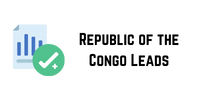The rapid growth of technology has drastically changed the marketing landscape. This development has brought about significant changes in the approach to marketing, giving rise to two main concepts: digital marketing and traditional marketing. In this article, we will explore the differences between these two strategies and their implications in the modern marketing era.
Table of Contents hide
1 Definition of Digital Marketing and Traditional Marketing
1.2 Traditional Marketing:
2 1. Reach and Targeting
2.1 Digital Marketing:
2.2 Traditional Marketing:
3 2. Interaction and Engagement
3.1 Digital Marketing:
3.2 Traditional Marketing:
4 3. Costs and Return on Investment (ROI)
Definition of Digital Marketing and Traditional Marketing
Digital Marketing:
Digital marketing involves using digital recent mobile phone number list platforms and internet technologies to promote products or services. It includes channels such as websites, social media, email, online advertising, and SEO. Digital marketing uses digital data and metrics to measure campaign performance.
Traditional Marketing:
Traditional marketing, also known as conventional or offline marketing, includes conventional approaches such as television, radio, print, and direct marketing. This strategy is more mass-based and focuses on creating awareness through offline channels.
1. Reach and Targeting
Digital Marketing:
Digital marketing allows for very specific targeting. By using user data from digital platforms, marketers can target their ads to specific segments. This ensures that the message reaches people who are actually potentially interested in the product or service.
Traditional Marketing:
Traditional marketing often has a broader reach and is less segmented. Advertisements on television or radio can reach a lot of people, but it is a laurent alexandre is ek in ôfstudearre fan sciences po difficult to determine how effective the advertisement is in reaching the desired target market.
2. Interaction and Engagement
Digital Marketing:
One of the main advantages of digital marketing is interactivity. Customers can directly interact with brands through comments, reviews, or direct messages. Digital campaigns can also create viral content, leveraging shares, likes, and comments.
Traditional Marketing:
Traditional marketing tends to be less interactive. While some forms of it can generate a response, such as contests or print ads with a phone number to call, the interaction is not as fast or intense as in digital marketing.
3. Costs and Return on Investment (ROI)
Digital Marketing:
Digital marketing is often more affordable, especially for small and medium-sized businesses. You can control your campaign budget with precision, and campaigns can start with a relatively low investment. Digital metrics allow marketers to measure ROI directly and make adjustments as needed.
Traditional Marketing:
Traditional marketing, such as television advertising or billboards, often requires a large budget. In addition, measuring ROI in traditional marketing can be more difficult because it is difficult to measure the extent to which the ad influenced purchases or conversions.
4. Speed and Flexibility
Digital Marketing:
Digital marketing provides incredible speed of campaign launch. Campaigns can be started and stopped quickly, and strategy changes can be made in real time based on ongoing performance data.
Traditional Marketing:
The process of producing and launching a traditional marketing campaign can be time-consuming. For example, producing a television commercial requires significant planning and preparation, as well as a fixed broadcast schedule.
5. Performance Measurement and Data Analysis
Digital Marketing:
Digital marketing enables sophisticated znb directory measurement through analytics data. Marketers can track how many visitors click on an ad, how long they stay on the website, and how they behave after clicking.
Traditional Marketing:
Traditional marketing tends to have limitations in measuring the effectiveness of a campaign. While there are methods such as surveys or market research,


